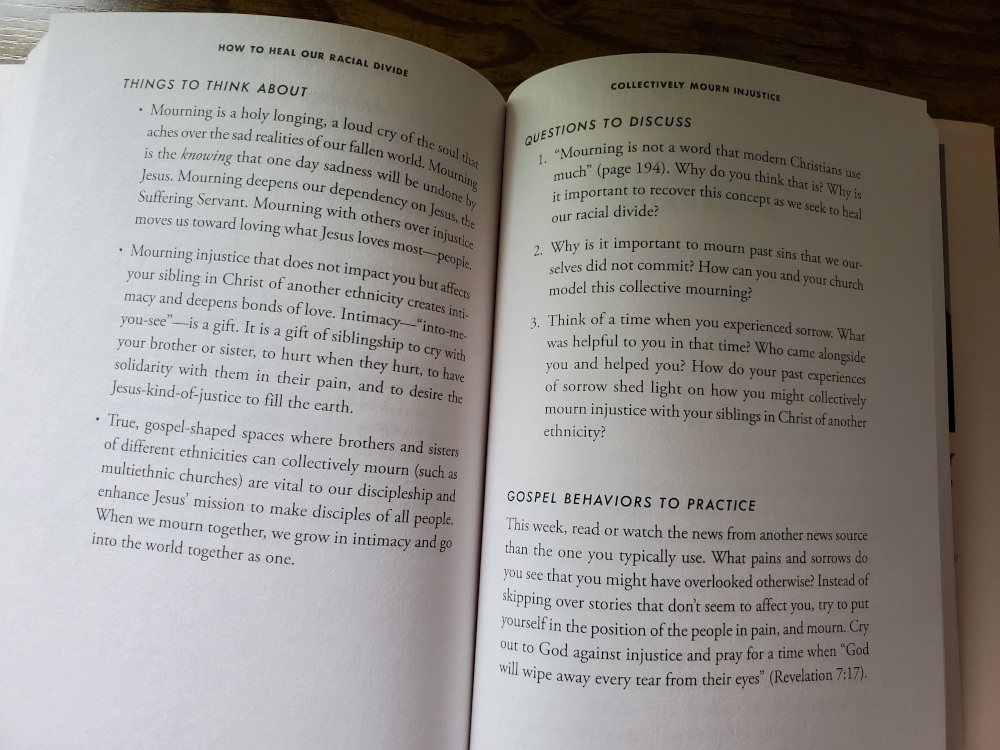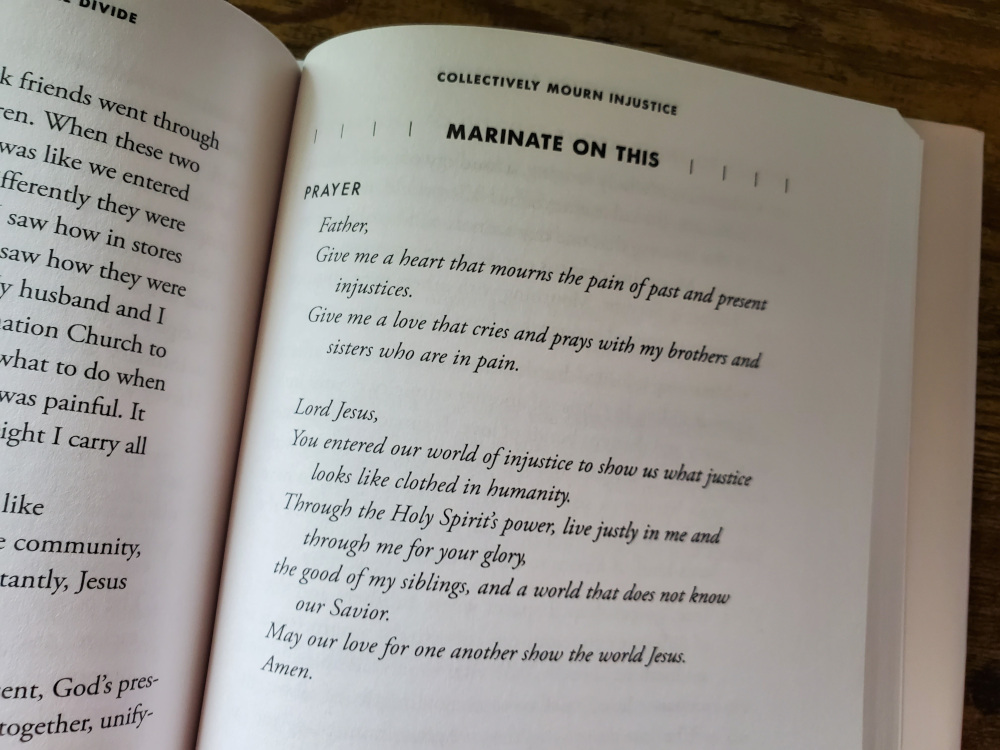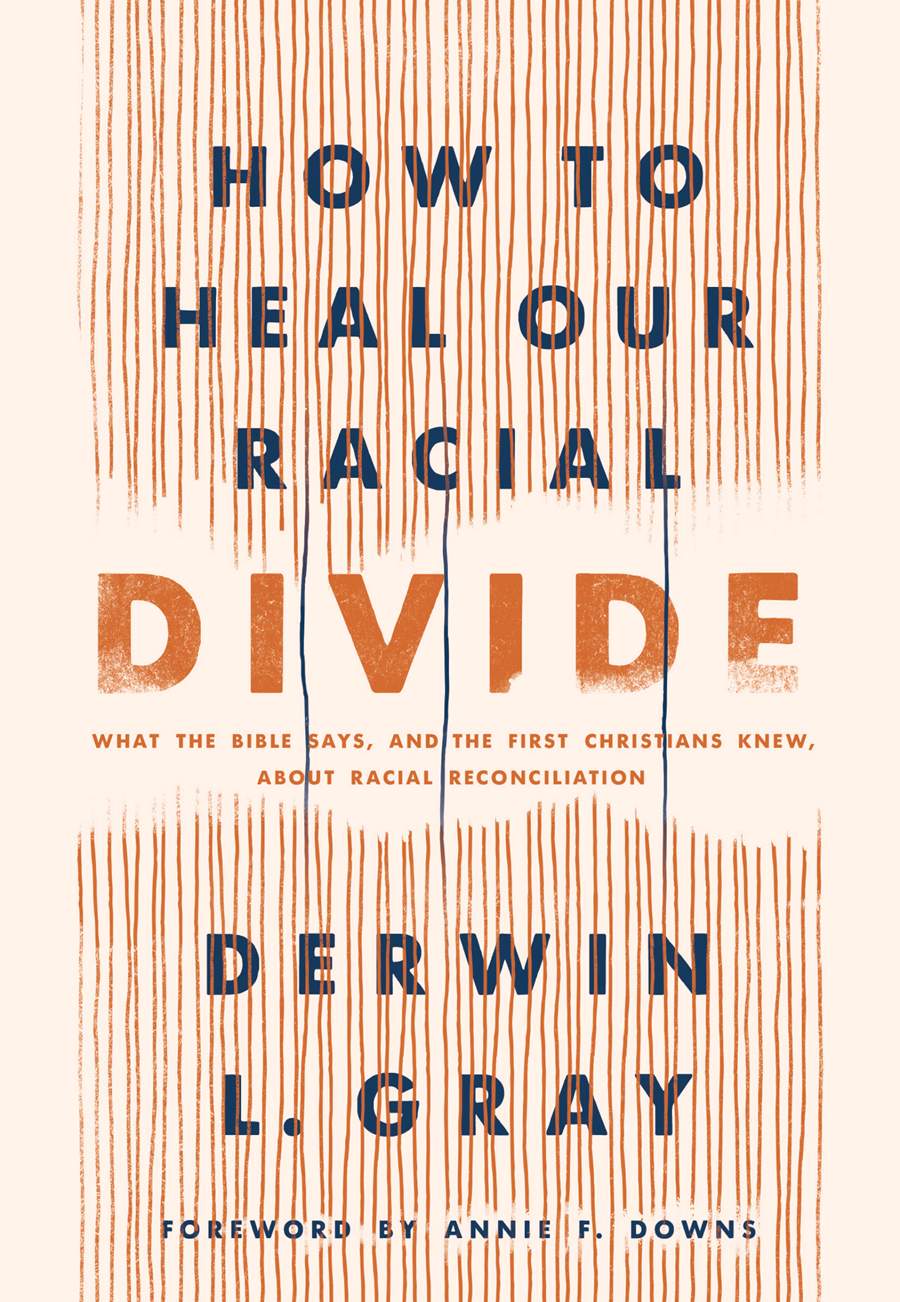Dr. Derwin L. Gray, pastor of Transformation Church in Charlotte, North Carolina, is a major voice for racial reconciliation and Christian unity. In his book How to Heal Our Racial Divide, Dr. Gray lays out a framework for churches to pursue understanding, healing, and unity among its members of people in surrounding communities.
How to Heal Our Racial Divide is a timely and important book that offers a biblical perspective on how to heal the racial divide in our society. Gray argues that the Bible has a lot to say about racial reconciliation and that it is central to the gospel itself.
Gray begins by exploring the biblical foundations of racial reconciliation. He shows how from the beginning, God envisioned a reconciled multiethnic family in loving community, reflecting his beauty and healing presence in the world. He then goes on to discuss the history of race and racism in the United States, and how these issues have shaped our current reality.
Dr. Gray often gets asked why he talks about race so much. Growing up in a predominantly white church, I can remember that same question floating around the congregation whenever race was even mentioned. Those white Christians—myself included—had a self-proclaimed hate for racism, but their idea of the appropriate treatment of racial matters was to act as if we’re all the same—like we couldn’t see skin color, as if racism had been solved and needed no further discussion.
But what if racism had been “solved” already? Would treating each other as ethnically homogenous be appropriate, or is there an intrinsic beauty to our ethnic differences? And why talk about race so much? Derwin Gray responds to this last question with, because the Bible talks about it. A lot.
In How to Heal Our Racial Divide, Gray shines a light on the many passages of Scripture that can inform our understanding of good ethnic diversity and unity among believers—Abraham’s blessing of fathering many nations, Moses marrying a Cushite woman (Numbers 12:1), the “impure” family lineage of Jesus1, and Paul’s many teachings on Christian unity, to name a few.
There is no ethnic supremacy, political idolatry, Christian nationalism, and racism in the future that all believers in Christ will inherit and share. Therefore, let us practice our future together now, in the present.

A family for Abraham
Near the beginning of the book, Gray spends some time talking about the significance of Abraham. God called Abraham so LIFE could flourish.
Using the acronym LIFE, Gray explains Abraham’s connection to the gospel and God’s master plan for humanity: life, inheritance, family, and expression.
Life
God created humanity to live in communion with him and in unity with one another, but the rebellion of Adam and Eve in Genesis 3 ushered in hostility—toward the Creator and toward one another. But when God called Abraham, then called Abram, in Genesis 12, he presented the gospel to him by proclaiming that all the peoples—or families or tribes or nations—of the earth would be blessed through Abraham.
Paul wrote his letter to the Galatians to address ethnic disunity and supremacy. In Galatians 3:7–9, Paul uses four gospel truths that Derwin Gray says can help to heal our racial divide:
- The promise of God
- The faith of Abraham
- The universal mission of God to bless all nations through the seed of Abraham
- The saving implications for all who have faith like Abraham
Those of us who have faith in Jesus are given a new life and reborn into unity with Christ and with one another. Gray stresses the importance of not missing the unity with one another. Racism has no place in the body of Christ.
Inheritance
As God’s children and the spiritual descendants of Abraham, believers will inherit the entire world, not only the land of Canaan promised to his physical descendants.
God’s
every nation and tribe and tongue
people are recreated for the new world that Jesus launched at his resurrection. Therefore, we are to represent the future in the present. Just as God’s people are under construction, formed as clay is shaped by the potter, so is the world we will inherit. This process is called progressive sanctification. It is the power of God’s Spirit working in the new people of God to conform us to Jesus, the Son of God.
Gray notes something interesting in this section that a lot of evangelical churches in America seem to miss: the promise of inheritance and salvation is not just for individuals, but for the corporate church, the body of Christ globally—the multiethnic, reconciled family of Abraham.
Family
Throughout the Bible, God’s people share unity with non-Jewish ethnic groups—from the mixed crowd leaving Egypt (Exodus 12:38), Moses marrying a Cushite woman (Number 12:1), the prophet Isaiah declaring that the Messiah would be a light to the Gentiles (Isaiah 42:6; 55:5), to the apostle Paul writing of the ethnic harmony that should be evident between Jewish people and Gentiles2. In Romans 15, Paul makes four Old Testament references to God welcoming the Gentiles3 in rapid succession (vv. 9–12).
God did not create us for tribalism, but to be a unified, multiethnic family. Again Dr. Gray calls out the shallow theology of individualistic salvation:
Like the early church, we must familiarize ourselves with and internalize God’s story of redemption. The American church has co-opted God’s story and shrunk it to an individualized, reduced salvation of Jesus dying only for my sins. But Jesus died for your sins, my sins, and the world’s sins so that a forgiven, reconciled, regenerated, righteous, holy, loved, unified, and Spirit-indwelled family could be given to Abraham.
Expression
Once we understand the life, inheritance, and family given to Abraham by God, we can express our allegiance to Jesus by relying on God the Holy Spirit to encourage, empower, and equip us to live in oneness and unity as a testimony of the gospel.
Ethnic differences are celebrated, socioeconomic differences lead to learning and cooperation. Gender differences complement one another.
When Abraham’s family is unified in the person of Jesus, we become a portrait of the new world that Jesus unveiled at his resurrection. God’s new world is a multiethnic, reconciled world of love, unity, and oneness.

Conclusion
In How to Heal Our Racial Divide, Derwin Gray argues that the church has a unique role to play in healing the racial divide. He calls on Christians to repent of their own racism and to work to create a more just and equitable society. He also provides practical advice on how to do this, including tips on how to have difficult conversations about race, how to build relationships with people of other races, and how to support organizations that are working for racial justice.
How to Heal Our Racial Divide is an important and timely book that offers a biblical perspective on how to heal the racial divide in our society. Gray’s insights are both challenging and hopeful, and his book is a valuable resource for anyone who wants to learn more about this important issue.
I highly recommend this book to anyone who is interested in learning more about racial reconciliation or who wants to be a part of the solution to the racial divide in our society. Gray’s book is well-written and easy to read, and it is packed with biblical insights and practical advice. I believe that this book has the potential to make a real difference in the lives of many people.
-
According to the gospel of Matthew, there are four Gentile women in the lineage of Jesus, which is significant when you consider that Matthew’s gospel was written primarily to an audience of Jewish Christians. The four Gentile women are Rahab, Ruth, Tamar, and Bathsheba. ↩
-
Romans 10:12, 15:7–13; Galatians 3:26–29; Ephesians 2:11–22; Colossians 3:11. ↩
-
In order, Paul’s references are Psalm 18:49; Deuteronomy 32:43; Psalm 117:1; and Isaiah 11:10. ↩
